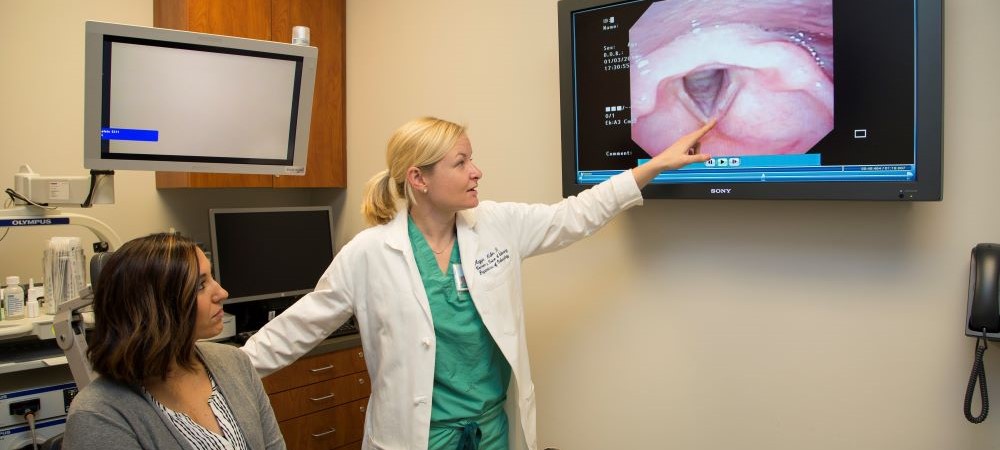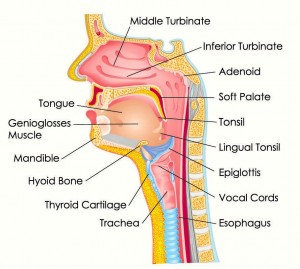Struggling to Hear Clearly? Time to Consult a Hearing Expert
Wiki Article
Checking out the Area of Otolaryngology: What to Expect When You Consult an ENT
Otolaryngology, frequently described as ENT, incorporates the medical diagnosis and therapy of throat, ear, and nose problems. For those experiencing relevant issues, speaking with an ENT expert can offer clarity and relief. Comprehending what to expect throughout such assessments is crucial for reliable communication and treatment. This summary will outline essential aspects of the ENT experience, consisting of usual factors for visits and the processes associated with medical diagnosis and treatment.
Recognizing Otolaryngology: An Overview
Otolaryngology, typically referred to as ENT (Ear, Nose, and Throat) medicine, is a customized branch of medication that concentrates on the diagnosis and therapy of problems impacting these important locations of the human body. This area encompasses a variety of conditions, including those pertaining to hearing, balance, respiratory system feature, and speech. Otolaryngologists are trained to manage both medical and medical therapies, utilizing sophisticated methods and modern technologies. Their competence prolongs beyond standard ailments, addressing issues such as allergies, sinus infections, and hearing loss. Furthermore, they play a vital duty in the management of head and neck cancers, providing detailed treatment tailored to private client needs. Overall, otolaryngology continues to be essential for maintaining wellness and high quality of life in afflicted individuals.Typical Reasons to See an ENT Specialist
Numerous individuals look for the competence of an ENT expert for a variety of factors, mirroring the diverse nature of problems that affect the nose, ear, and throat. Usual issues consist of chronic sinusitis, which typically leads to consistent nasal blockage and facial discomfort. Allergic reactions and their linked symptoms, such as sneezing and itching, likewise motivate visits to these experts (Voice). Hearing loss, whether abrupt or steady, is another considerable reason for appointment. Furthermore, individuals may seek evaluation for throat problems, consisting of persistent hoarseness or swallowing troubles. Rest apnea, characterized by cut off breathing throughout rest, is often attended to by ENT professionals. Each of these conditions highlights the value of specialized treatment in taking care of intricate ENT-related health concerns
Getting ready for Your ENT Consultation
When getting ready for an ENT appointment, it is necessary to collect pertinent info and take into consideration any kind of details problems. People should compile a comprehensive medical history, including previous ear, nose, or throat problems, surgical treatments, and current medications. Recording signs-- such as frequency, duration, and intensity-- can provide beneficial insights for the ENT specialist. Additionally, individuals need to prepare a listing of questions they wish to ask, making certain that all problems are attended to throughout the check out. Bringing along any type of pertinent medical records or test outcomes can even more assist the ENT in recognizing the person's problem. Ultimately, individuals must confirm their consultation information, including location, date, and time, to reduce any kind of last-minute complication. Correct prep work can improve the effectiveness of the consultation and cause better outcomes.What to Expect During the Assessment
As the appointment begins, the person can expect to participate in a detailed conversation with the ENT professional regarding their symptoms and case history. The specialist will certainly make inquiries regarding the duration, frequency, and intensity of signs such as hearing loss, nasal congestion, or sore throat. In addition, the client's previous clinical problems, medicines, and any appropriate household history will be examined, assisting the expert in forming a total understanding of the patient's wellness. The ENT might additionally inquire about way of living aspects, such as direct exposure to irritants or toxic irritants. This open discussion develops a foundation for the appointment, making sure that the person's problems are resolved and establishing the phase for any type of required assessments or recommendations for treatment.
Diagnostic Examinations and Treatments in Otolaryngology
A variety of diagnostic examinations and procedures are important in otolaryngology to properly review and identify conditions influencing the nose, ear, and throat. Typical tests consist of audiometry, which determines hearing feature, and tympanometry, examining middle ear stress. Nasal endoscopy enables visualization of the nasal flows and sinuses, while laryngoscopy checks out the throat and vocal cables. Imaging techniques, such as CT scans and MRIs, provide thorough views of head and neck frameworks. Allergy testing might also be performed to identify triggers for sinus or respiratory system problems. These analysis tools make it possible for ENT professionals to develop a comprehensive understanding of patients' problems, guaranteeing customized and effective administration plans. Correct diagnosis is crucial for effective treatment outcomes in otolaryngology.Therapy Alternatives Provided by ENT Specialists
ENT specialists use a selection of treatment alternatives tailored to attend to particular conditions influencing the throat, ear, and nose. These therapies range from conventional strategies, such as medicine and lifestyle adjustments, to even more intrusive treatments. For circumstances, allergic reactions might be managed with antihistamines or immunotherapy, while chronic sinus problems may call for nasal corticosteroids or sinus surgery. For hearing loss, ENT experts usually advise listening devices or surgical interventions like cochlear implants. In cases of throat problems, options can include speech therapy or operations to get rid of blockages. In addition, they might provide advice for taking care of rest apnea, including the usage of CPAP tools or medical treatments. Generally, the objective is to enhance clients' lifestyle via individualized treatment and efficient therapy techniques.When to Seek Follow-Up Treatment With an ENT
When to seek follow-up treatment with an ENT expert is important for managing ongoing signs and symptoms or difficulties associated to throat, ear, and nose problems, recognizing. Patients need to think about setting up a follow-up appointment if signs and symptoms continue despite initial treatment, such as chronic ear pain, nasal congestion, or throat pain. Modifications in hearing, balance concerns, or unusual nasal discharge might likewise warrant additional examination. In addition, if a patient experiences negative effects from recommended medications or has actually gone through an operation, follow-up care is crucial to keep an eye on recovery and resolve any type of problems. Prompt examinations can guarantee reliable administration of conditions, stop potential difficulties, and supply assurance relating to one's health and wellness. Looking for follow-up care promotes proactive wellness administration in otolaryngology.Regularly Asked Questions

What Credentials Should I Seek in an ENT Specialist?
When seeking an ENT specialist, one need to try to find board accreditation, pertinent experience, and solid patient testimonials. In addition, efficient communication skills and a caring method can considerably boost the general treatment experience.Just how Do I Select the Right ENT for My Requirements?
Picking the right ENT professional includes assessing their certifications, experience, and person testimonials (Otolaryngology). It is vital to consider their interaction design and method to therapy, guaranteeing they line up with the individual's particular health and wellness needs and choicesExist Any Risks Related To ENT Procedures?
The threats ENT surgery connected with ENT treatments may include infection, bleeding, anesthetic difficulties, and possible damages to surrounding frameworks. Clients should review these dangers with their physician to understand private concerns and warranty informed decisions.Just How Can I Take Care Of Anxiety Before My ENT Appointment?
To manage anxiousness prior to a visit, people can exercise deep breathing workouts, imagine favorable end results, prepare concerns in advancement, and look for support from close friends or household, promoting a feeling of confidence and peace.What Should I Do if I Experience Negative Effects From Therapy?
If negative effects from therapy happen, the person must quickly report them to their healthcare copyright. Modifications to treatment or additional interventions might be required to ensure safety and security and efficiency in managing their condition - Voice. As the consultation begins, the client can expect to involve in a comprehensive conversation with the ENT specialist regarding their signs and medical history. These diagnostic tools enable ENT specialists to develop a detailed understanding of individuals' conditions, making sure customized and reliable management strategies. ENT professionals provide a range of treatment choices tailored to address certain conditions influencing the ear, nose, and throat. When seeking an ENT expert, one must look for board accreditation, appropriate experience, and strong client reviews. Choosing the right ENT expert includes examining their certifications, experience, and person testimonialsReport this wiki page